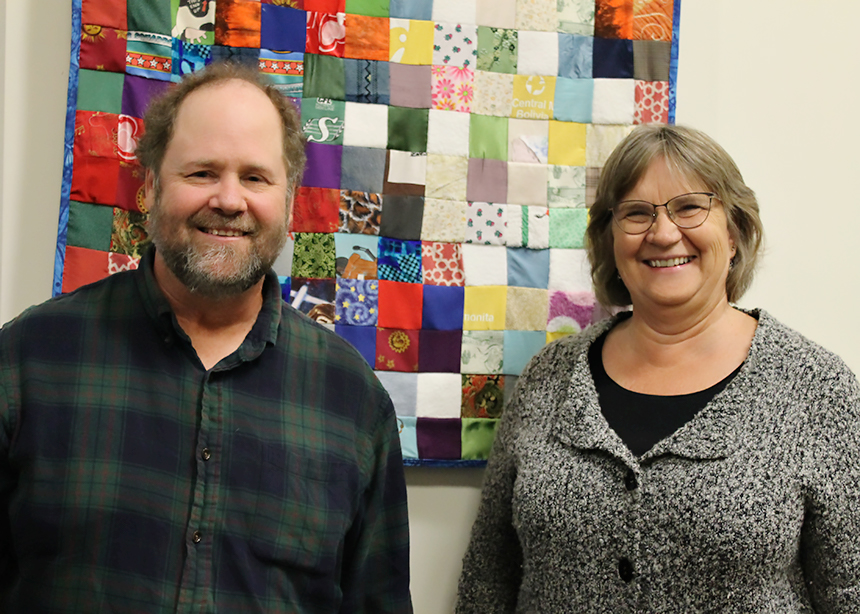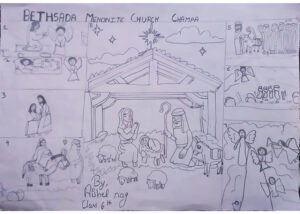A solitary candle flickers on a low table in the middle of a darkened room. Participants chat quietly with one another as they wait for the session to begin, having come to partake in an hour of centring prayer and sharing.
Melody Neufeld and John Gascho launched the centring prayer group in late August. Both are members of Mennonite Church Saskatchewan’s Spiritual Resource Committee, which, throughout the past year, introduced congregations to various forms of prayer. Centring prayer was one of those forms.
Both Neufeld and Gascho were familiar with, and had practised, centring prayer as individuals. But Neufeld says that when she travelled to the Center for Action and Contemplation in Albuquerque, N.M., she learned how powerful the experience could be when done in a group.
Gascho, likewise, felt that since they had introduced centring prayer to the regional church, it was now time to put it into practice.
And so the two invited individuals they knew had interest in contemplative prayer to be part of a group that would meet regularly for prayer and sharing.
A centring prayer session begins as participants choose a sacred word that will remind them of God’s presence. During the silent prayer time, as they find their minds wandering, they repeat the sacred word as a way of returning to centre.
Citing founder and practitioner Thomas Keating, Neufeld likens centring prayer to standing on the shore of a river and watching one’s thoughts float by as if they were boats on the river. “The trick,” she says, “is not getting into a boat.”
Centring prayer, she says, is about sitting in silence and being open to what God has to say. “You might be bringing yourself back a billion times in a 20-minute sit,” she says, “but that’s a billion opportunities to recall your intention.”
Gascho suggests that it is a matter of practice. “The thoughts will subside the more you practise,” he says assuredly. “The ego will soften and will give way to the present moment.”
“I like the word ‘practice,’ ” says Neufeld. “None of us has arrived. It’s not about the goal, it’s just about the doing.”
Praying in darkness is significant for Gascho. “Darkness is a medium that provides a place for new beginnings,” he says. “When you plant a seed in soil [it] becomes accustomed to its surroundings. As rain and nutrients come, the seed swells and grows.” In the same way, he says, “we grow in darkness as God provides what we need for the journey. . . . Prayer is very simple, and yet very basic truths are often the most profound.”
“My hope is that a space is created for people to come and practise centring prayer together,” says Neufeld, adding, “We also spend part of the evening sharing about what is going on in our lives. I hope we can provide space for those things to happen.”
The centring prayer group is open to anyone who wishes to participate. The group meets on alternate Tuesday evenings at Osler Mennonite Church.








Leave a Reply
You must be logged in to post a comment.